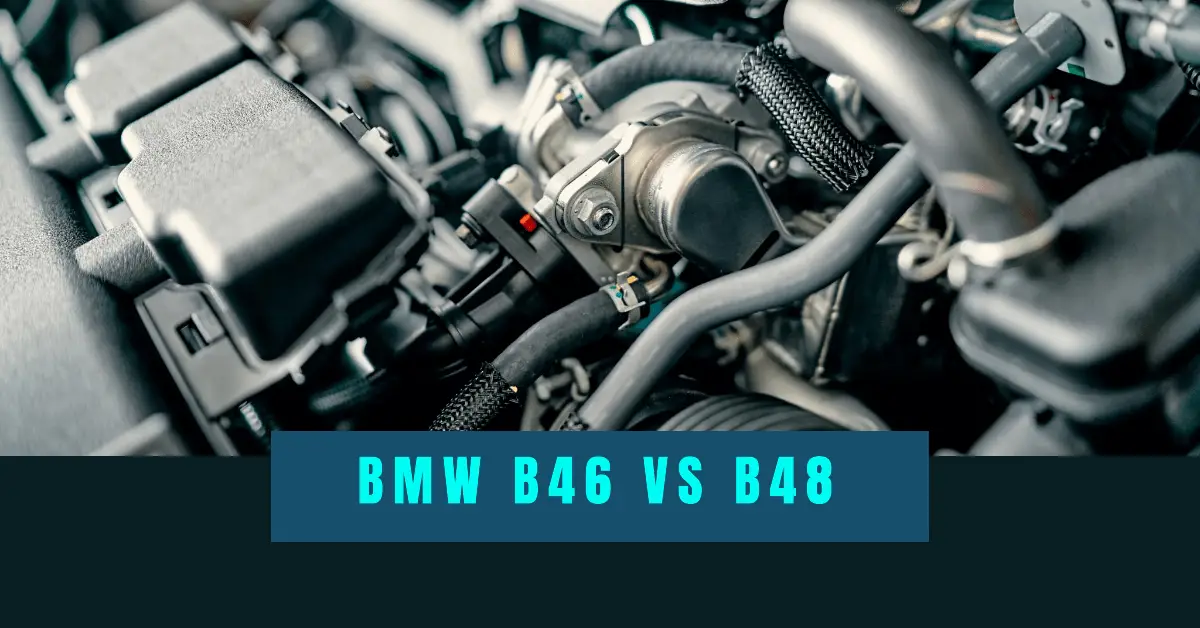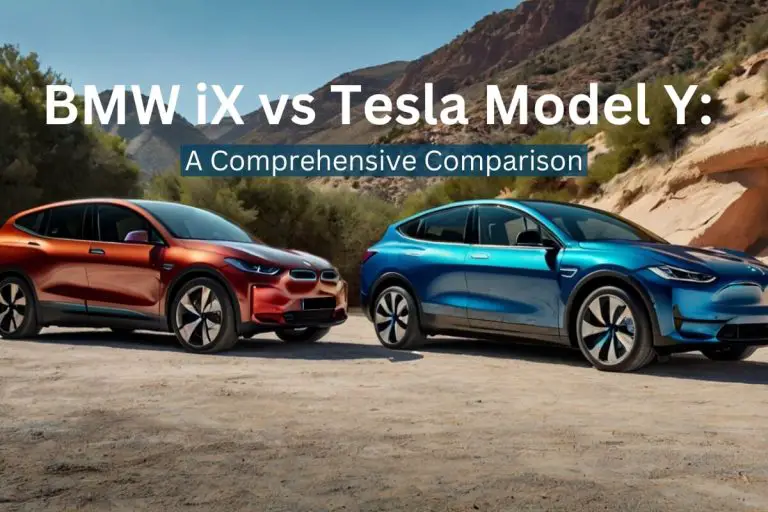BMW B48 vs B46: How Do the 2 Turbo Engines Compare?
BMW has transitioned to modular engine designs over the past decade, bringing both manufacturing and performance benefits. Two of their latest turbocharged modular engines are the B48 and B46. But what exactly are the differences between these two motors?
The BMW B48 and B46 engines share a similar block design and have identical bore, stroke, and displacement. However, variations in turbocharging and tuning result in different power and efficiency ratings.
This in-depth guide examines the specs, horsepower, fuel economy, sound, and real world differences between the B48 and B46. After reviewing reliability, pricing, and modifications, we’ll see how they stack up to help you determine which is the better BMW engine.
Overview of BMW’s Modular Engine Design
BMW’s shift to modular engines started in 2013 with the introduction of the 1.5L 3-cylinder B38 motor. The modular design uses shared components and dimensions to allow flexible production of different displacements and configurations.
Some benefits of modular engines include:
- Manufacturing efficiency – shared components and tooling
- Economy of scale – higher volume production
- Simplified maintenance – interchangeable parts
- Tuning potential – easy to modify for more performance
The B48 and B46 are both part of BMW’s new generation of modular 4-cylinder engines. They have the same block design and share internal components like the crankshaft, pistons, intake, and more.
However, variations in displacement and turbocharging make them distinct motors. Let’s look at the specifications of each.
Specs and Design of the B46 and B48
The B48 first appeared in 2015 displacing 2.0 liters. The B46 followed launching in 2016 with a displacement of 1.6 liters.
On paper, here are the specs and design of each engine:
- B48
- 2.0L displacement
- Inline 4-cylinder layout
- Twin-scroll turbocharger
- Double VANOS variable valve timing
- Valvetronic variable intake
- 500 cc fuel injectors
- 11:1 compression ratio
- B46
- 1.6L displacement
- Inline 4-cylinder layout
- Single or twin-scroll turbo
- Double VANOS
- Valvetronic
- 350 cc injectors
- 10.2:1 compression
The engines share identical 81 mm bore and 94.6 mm stroke dimensions. This allows them to utilize the same cylinder blocks, crankshafts, pistons, valves, and other components to save manufacturing costs.
However, the different displacements come from the B48 having a longer stroke than the B46.
Another key variation is the turbocharging. The B48 uses a twin-scroll turbo while the B46 uses either a single or twin-scroll, depending on the vehicle tuning. This gives the B48 better torque and efficiency.
Horsepower and Torque Ratings
The stock power and torque ratings differ between the two engines largely due to the turbocharging and tuning differences:
- BMW B48
- 184-258 hp (depends on model)
- 236-295 lb-ft torque
- BMW B46
- 134-231 hp
- 162-236 lb-ft torque
The B48’s twin-scroll turbo allows it to produce significantly more peak horsepower and torque on most models when compared to the single turbo B46.
For example, the 2020 BMW M235i xDrive with the B48 generates 301 hp and 332 lb-ft of torque. Comparatively, the BMW 225xe with the B46 produces a lower 231 hp and 236 lb-ft.
When tuned and modified, both engines respond very well to extra boost and optimizations. Some tuned B48’s exceed over 500 hp while tuned B46’s can achieve over 300 hp. Ultimately, the larger displacement B48 has greater performance potential at higher levels of modification.
Fuel Efficiency and Economy
The B48 motor also beats the B46 when it comes to fuel efficiency and gas mileage. Here are some fuel economy estimates:
- B48 in BMW 330i: 26 mpg city / 36 mpg highway
- B46 in BMW 225xe: 29 mpg city / 33 mpg highway
The B48 has consistently received higher city and highway MPG ratings across vehicles like the 330i, 230i, and M235i. Real world driving seems to align with EPA estimates.
Factors like the twin-scroll turbo, direct injection, and engine tuning allow the 2.0L B48 to maintain high mpg, even outperforming the smaller 1.6L B46. Going with the B48 can save on fuel costs in the long run.
Reliability and Common Problems
Both the B48 and B46 are relatively new engines, having been in production for 5-6 years. They are both built to BMW’s high manufacturing standards using quality components. As a result, these modular motors have proven to be reliable and durable in daily driving.
Some common problems are:
B48
- Engine hesitation or reduced power due to wastegate or vacuum leaks
- Multiple misfires from bad ignition coils
- Oil leaks from gasket or seal defects
B46
- Oil leaks at the vacuum pump and gasket surfaces
- Burning oil smell from the turbocharger oil return line
- Misfires and check engine light due to faulty spark plugs
These issues rarely occur within the first 50k miles. Overall, the B48 may have a slight reliability edge over the B46 partly due to the twin-scroll turbo setup reducing operating temperatures and stresses. Both engines can reliably achieve over 150k miles with proper care and maintenance.
Engine Sound and Acoustics
The B48 produces a deeper and louder engine noise than the B46. The 2.0L displacement and less restrictive twin-scroll turbo allows the B48 to achieve a nicer exhaust note from the factory.
Here’s a comparison of the stock exhaust sound:
- B48 – Bolder mid and low-end, moderate turbo spool noise
- B46 – Raspy and muted, loud turbo whistle
Many owners install aftermarket exhausts, intakes, and downpipes to enhance the acoustic profile of both engines. With some modifications, the B48 can produce a refined rumble while the B46 has a slightly synthetic or flat sound even with upgrades. Overall, the B48 wins when it comes to best sounding factory BMW 4-cylinder.
Cost and Aftermarket Support
There is generally a $1,000 to $1,500 premium for the B48 motor compared to the B46. Resale values tend to be higher for B48-equipped BMW’s. This cost difference is justified by the extra performance and efficiency the 2.0L turbo engine provides.
Both benefit from a wide range of aftermarket support and options from tuners. Common modifications include:
- Custom turbocharger upgrades
- Performance air intakes
- Cat-back exhaust systems
- ECU tunes and reflashes
- Downpipes and headers
- Lowering springs and coilovers
While parts are largely interchangeable between the B48 and B46, some mods are tuned specifically for each engine. Overall the B48 has an edge in aftermarket upgrades to maximize power.
Conclusion
The BMW B48 and B46 represent the latest in the brand’s modular engine technology. In stock form, the B48 2.0L turbo engine clearly beats the smaller B46 in horsepower, torque, fuel economy, sound, and aftermarket potential.
Modifying and tuning both powerplants can produce incredible performance results. However, when optimized, the B48 still pulls ahead of its 1.6L counterpart. The twin-scroll turbo and extra displacement ultimately gives the B48 more potential.
For shoppers cross-shopping BMW models with either motor, expect to pay a small premium for the B48. However, the improved efficiency, power delivery, and acoustics are worth stretching the budget. While the B46 is competent, the B48 is the better overall BMW engine.







